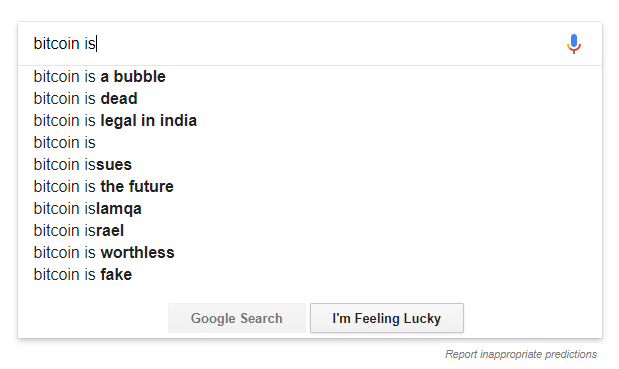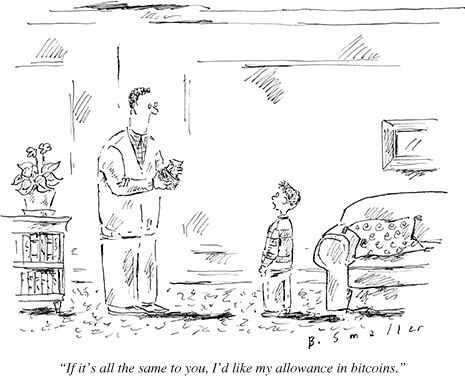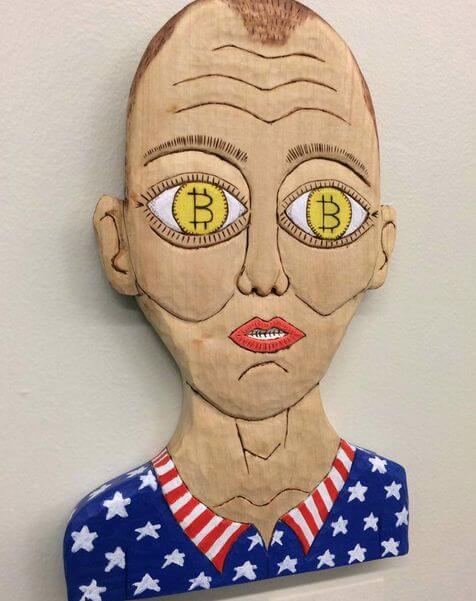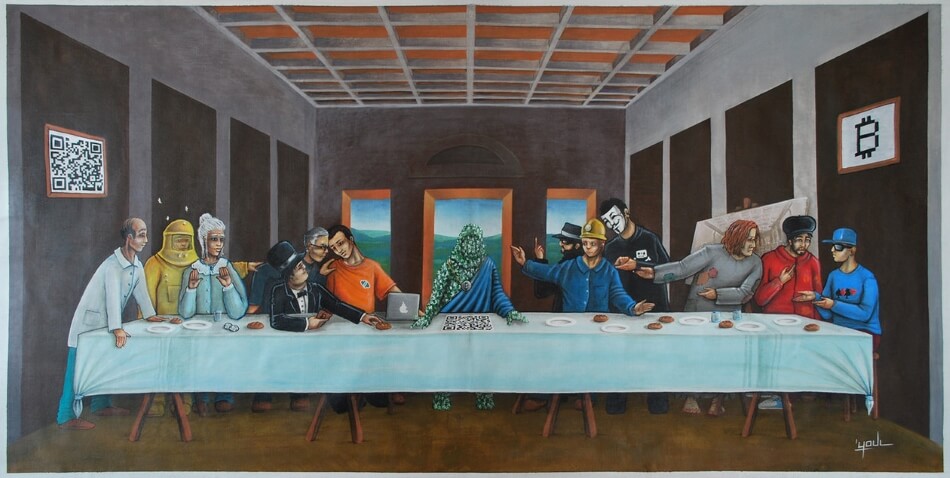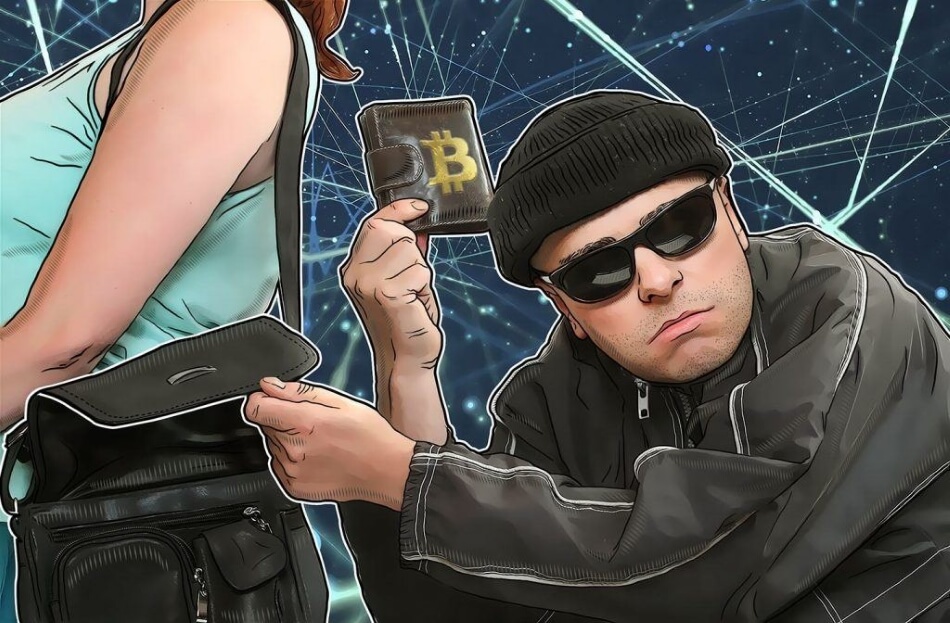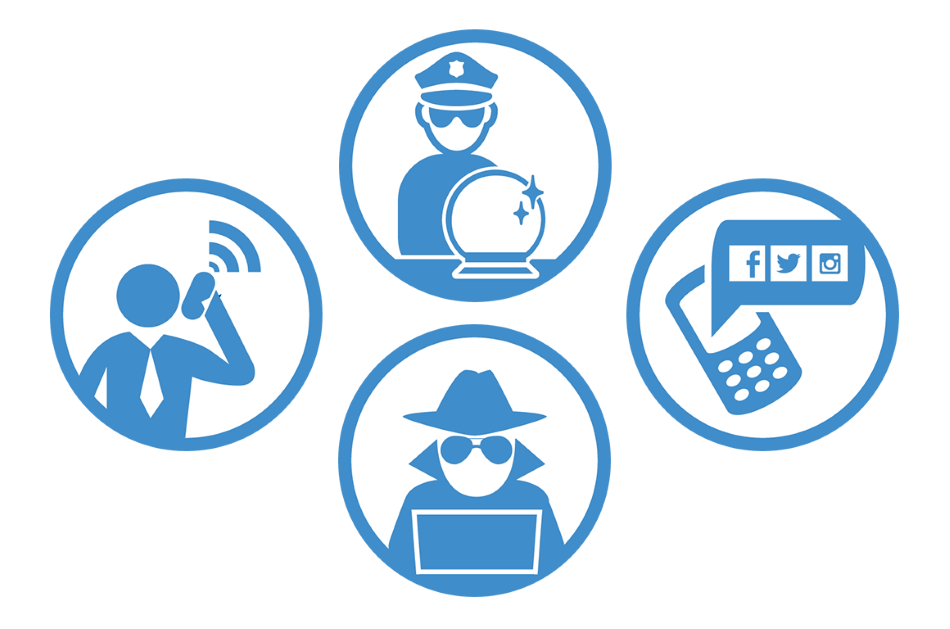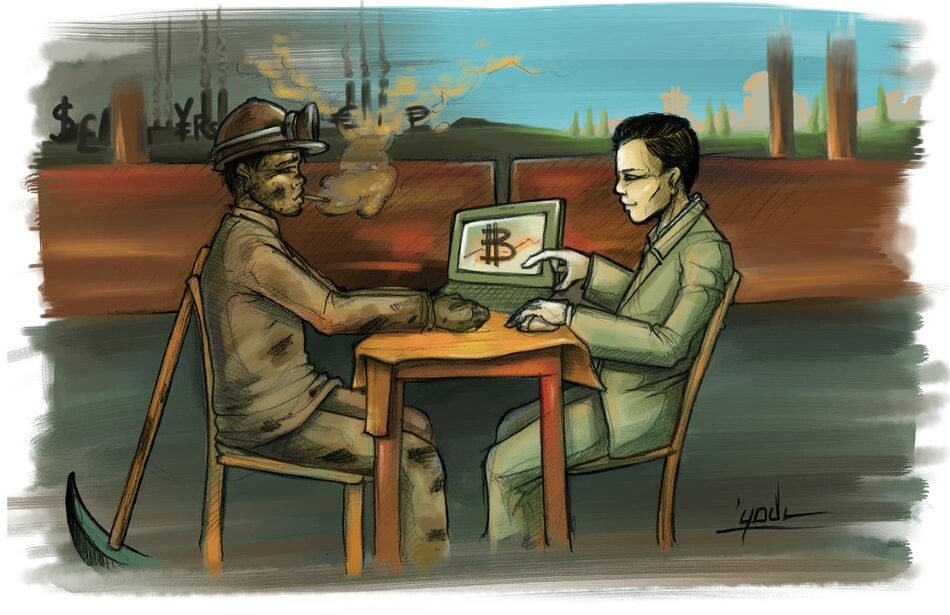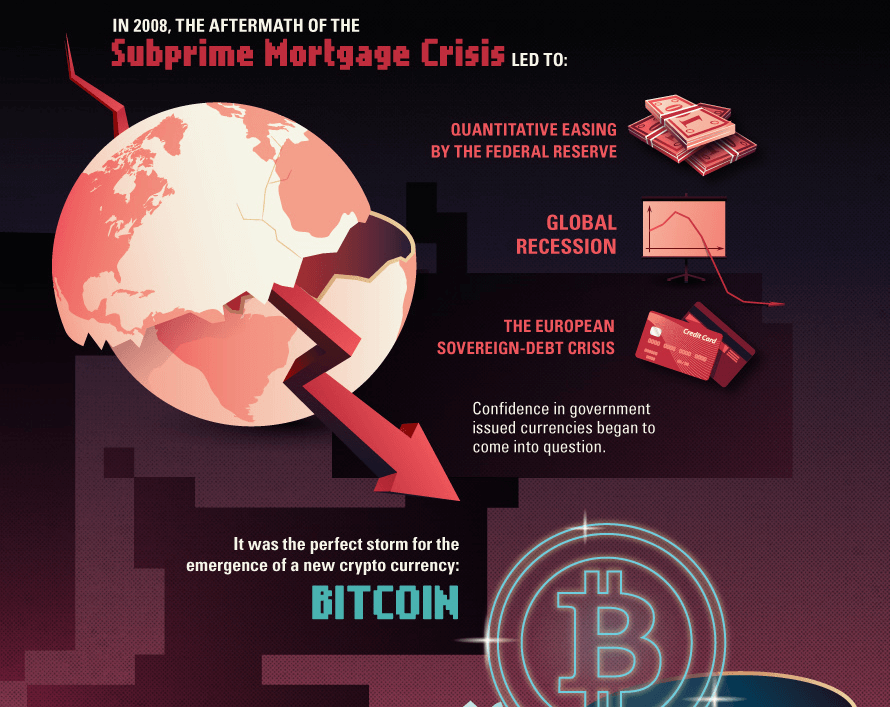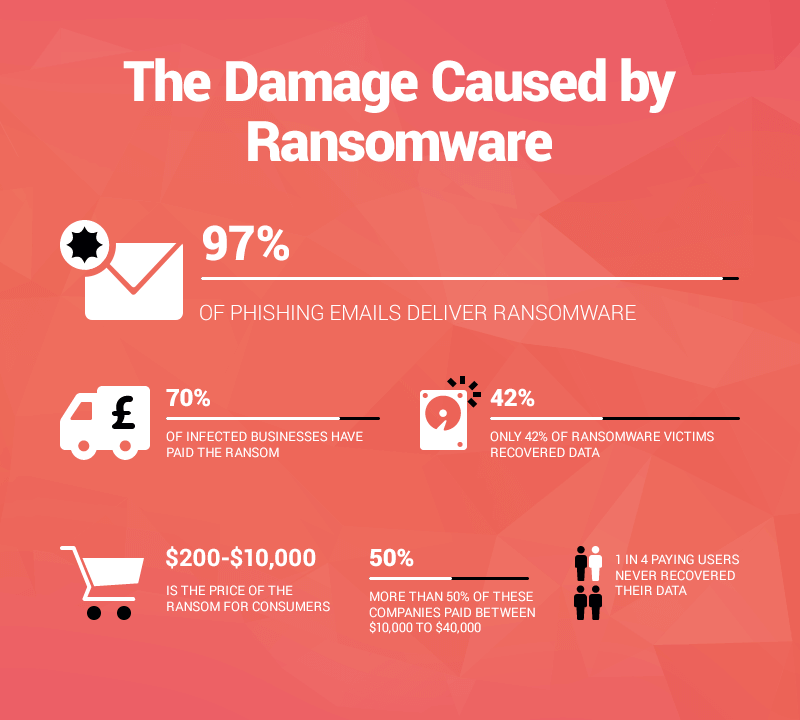Contents:
If you wish to make an apple pie from scratch invest in bitcoin, you must first invent the universe read this.
These are the true stories that teach you how to get cryptocurrency security so your endeavors into digital currency can have a happy ending.
Use the links below to jump to the one that best applies to you.
John heard about bitcoin and got curious
Sam just wanted more money
Luis was afraid of his government
The reason we’re offering advice about cryptocurrency security is this:
Cryptocurrency security should start with basic cybersecurity
Because Tyler Durden goes toe to toe with Tyler Durden
Remember when you first read about Bitcoin and heard the term “cryptocurrency”? You probably skipped past it. Or maybe you thought about buying a Bitcoin but you got a games console instead.
After all, you’d have to be crazy to spend $10 on a single, invisible, intangible coin hawked by a few tech people. They always get excited about something and that excitement reaches a paroxysm which can end in tragedy like the dot.com boom or the acquisition of Instagram for more $$$ than a national GDP.
However, the years passed and cryptocurrency is here to stay, a movement spearheaded by bitcoin and its turbulent history. It’s a name now almost synonymous with blockchain technology.
Created in 2008 by the mysterious Satoshi Nakamoto, bitcoin is essentially digital money. It also cemented the “blockchain” concept in popular consciousness.
This means it’s tracked by all those who own this money in a public ledger, promising unparalleled accountability and transparency. It appeals not just to anarchists, but to people like you and me. Its peer-to-peer concept defies central banks, corporations and, ideally manipulation, but it’s not invulnerable, something which we’ll explore further on.
The first story belongs to a friend of mine, let’s call him John.
John heard about bitcoin and got curious
Around six or so years ago, John got around 3 bitcoins just by being around Reddit. It was back when users used to tip each other with this cryptocurrency. One evening he was bored so he set-up a wallet. Reddit users found him cool, so they tipped him for insightful comments using Bitcoin.
It was a long time ago when he shared the story so my memory’s foggy about the exact circumstances in which he lost those coins.
I remember he forgot one password and it spiraled out of control from there.
The way he told me, his Reddit account was connected to his Yahoo email. It was also there where he kept his wallet. He got another account on Reddit, as a lot of users do (alt-accounts are very popular), forgot about the coins for a few years, then woke up to the reality.
Bitcoin was huge. 3 bitcoins could secure him the trip of a lifetime or even a sizeable down payment on a car. His modest savings from working a 9-5 job were nothing compared to the value of bitcoin. He just needed to find his wallet and trade them for “real money”.
You see where this is going?
Yes, he first tried logging in to Reddit. Nada.
He went on Yahoo. Nada.
He tried to get info online on how to recover his accounts and his lost funds. Big, fat NADA.
He forgot his password for one website and it triggered a chain reaction resulting in losing A LOT of money.
Fortunately, he doesn’t really regret the experience, because he never got to hold those Bitcoins in his hand. They never jingled in his pocket or took a trip to the washing machine, forgotten in a jean pocket.
That money didn’t feel really real to him, so the loss hurt, but not that bad. Mark Fraunfelder from Wired felt differently when he forgot his Trezor password and lost $30,000 in Bitcoin.
My friend John thinks that most everyone who invested in cryptocurrency came out ahead, even though some experts have warned that this is a bubble or a multi-level marketing scheme.
He also watches the cryptocurrency news like a hawk, hoping for a second chance at buying Bitcoin at a low. And setting aside some money to buy Ether, just in case this cryptocurrency gains more ground. Hedging his bets, essentially.
Does he sound like you?
I know you’re here because you’re itching to invest in Bitcoin, Litecoin, Ether or Monero. I’m here to hopefully help you do so safely. I’m going to go more cryptocurrency stories like my friend John’s, as retold by incredible journalists at top tech publications. You will find insights into the wonderfully complicated and yet alluring world of cryptocurrency. You will also hopefully learn to take cybersecurity seriously because it’s not just important for your general data, but essential if you plan to invest in any type of cryptocurrency.
If you’re already intimately familiar with blockchain, the stories won’t reveal any more expert details about blockchain and cryptocurrency. What I hope they will do is teach you the importance of cryptocurrency security, of making sure you’re bulletproof against malicious hackers. Even my friend John could have avoided a lot of heartaches if he simply had good password practices.
You can follow this step-by-step password security 101 guide to not fall into the same trap as John.
After all, after risking your hard-earned money on a novel, complicated idea like blockchain, and hopefully after profiting from it, the last thing you want is to be hacked or lose your credentials in a stupid accident.
Sam just wanted more money
Perhaps every cryptocurrency adopter, you and I included, has a very simple reason for buying the digital coins. We’re all Sams wanting more money, because… capitalism. Malicious hackers want more money, too.
Here’s how they get it.
Virtual currencies are a favorite target for malicious hackers because they hold value and have relatively weak security.
Furthermore, they’re unregulated.
The same draw cryptocurrencies pose to Tyler Durdens around the world is their downfall.
There is no higher authority to regulate the coin, so there is no higher authority to reverse fraudulent transactions. If you live in a country without any policies regarding cryptocurrency, where are you going to report a theft?
In one example of a bitcoin hack, bitcoin wallets got compromised by intercepting text messages, as detailed in this demonstration.
https://youtu.be/mLh1Nmqa6OM
These SS7 attacks can affect large numbers of users, even those who had two-factor authentication. However, if you followed this guide and used an app like Google Authenticator, who generates one-time codes, you would be safe from this exploit.
A bitcoin hacking can happen to even the most tech-savvy of us. Take for example Chris Pool, aka moot, the founder of popular and controversial forum 4chan. He got hacked twice in a day, the attacker gaining access to his forum and Amazon cloud account, where he started mining Bitcoin.
In one report, a Trojan made away with $140.000. In another, hackers got into one of the largest bitcoin exchanges in the world, gained access to the personal information of 31.800 users and stole over 1.2 billion won, just over $1mil.
One victim said that the attacker posed as an executive at Bithumb and phoned to say that he was “suspicious of a foreign hacking transaction,” asking the victim to provide further information. If that victim was more aware of social engineering, one favorite tactic from malicious hackers, this story could have had a happier ending. So, if you’re a Sam wanting to make a quick buck or a John investigating a new piece of tech, it’s still up to you to protect yourself from cyber attacks. If you’re a Luis, this is even more important. Here’s what to do:
- Learn all about password security and make sure yours are uncrackable by using a comprehensive guide
- For chat, use a chat app like Signal and an open-source or peer-verified tool that offers end-to-end encryption like OTR Messaging. Don’t rely on tools like Google’s “Go off the record”.
- Access the internet using a secure web browser like Tor
- If you can’t use Tor, choose an extension like HTTPS Everywhere from the Electronic Frontier Foundation and follow this guide to ensure browser security for all major browsers
- Always use VPN when connecting to other networks (eg: coffee shops)
- Keep the most sensitive data on a separate, encrypted hard drive or on an encrypted flash drive.
- For the flash drive, you can use BitLocker for Windows. If you want an open source solution, VeraCrypt is the way to go.
- For maximum security, use an air-gapped computer. This is a computer or a laptop never connected to the internet, where you can keep and work on your most sensitive data. Then encrypt that data, put it on a secure flash drive, then use it on your computer connected PC.
- If you’re part of a political or revolutionary movement who needs to use social media to spread awareness about the cause, another tactic to hide your presence is obfuscation.
More on that below, in Luis’ story.
As with all other cybersecurity measures, make sure you keep software updated and use anti-virus software to protect yourself from malware and other threats.
Luis was afraid of his government
According to this website, Luis is a name shared by 2.5% of Venezuelans, so it’s Luis we’ll be following in this tale on how Bitcoin and other cryptocurrencies can save people from another Great Depression.
Venezuela is currently going through the worst hyperinflation crisis since the Weimar Republic, and the situation is just as dire in Zimbabwe. Both countries have huge numbers of citizens buying and trading bitcoin in the hopes of riding out their country’s currency depreciation.
Luis is living in Venezuela. Unbeknownst to him, the fact that he chose to save his money in Bitcoin has turned his country into the first bitcoinization of a sovereign state. In other words, at this pace, Venezuela could become a cashless society. Over 100.000 of its citizens are mining bitcoin, litecoin and other currencies as a way to survive the hyperinflation.
An average salary in Venezuela is around $40 per month. An average machine dedicated to mining cryptocurrency can produce 20-25 Litecoins per month, which is $920 in “real” money. Electricity is cheap.
This is how Venezuelans can survive in an economic climate where a Big Mac costs about half of a month’s paycheck, according to a troubling Atlantic story. However, the authorities do not like that. Socialist President Nicolás Maduro has said that those who profit off inflation are “capitalist parasites” and started cracking down on cryptocurrency mining.
However, the country does not have laws on this, so the authorities find different ways of punishing people like Luis.
“If they find machines, they arrest the owners or they try to extort money. In electricity, we spend barely 15,000 bolivars a month (less than 50 cents at the black market rate),” said Veronica, a bitcoin miner just like Luis.
In this amazing article on the secret, dangerous world of Venezuelan bitcoin mining, reporter Jim Epstein relays how regular Venezuelans mining bitcoin have been targeted by the government.
“On March 14, two SEBIN officers showed up unannounced, according to Padrón, claiming that workers with the power company had detected high levels of electricity use at that address and demanding to search the premises. That afternoon he was taken into custody. Padrón would spend the next three and a half months in a SEBIN detention center, sharing a 230-square-foot cell with 12 other men.“
Authorities are arresting or blackmailing bitcoin miners using charges like contraband (for purchasing computer parts made in China without paying import tax), electricity theft or causing power outages.
As Tim Worstall highlights, this is hypocrisy at its finest. The government makes electricity cheap, almost free, to “help” citizens, citizens use that energy to earn money. The same government then arrests those citizens for stealing energy.
Luis from Venezuela and his compatriots are just one example of what bitcoin and cryptocurrency can do to a society. The good part is that it allows people to prosper even in harsh circumstances. They can isolate themselves from the effects of an economic crisis so dire that compatriots have been forced to kill flamingos and anteaters for subsistence.
The bad part is that it’s unregulated in most parts, unlawful in others. This can land cryptocurrency miners in really hot waters, if not directly in jail.
Cryptocurrency security should start with basic cybersecurity
Cryptocurrency security should start with basic cybersecurity, then advanced tools.
Living in fear of your own government brings about thousands of ways of avoiding that government. We can’t tell you how to evade the authorities by hiding in poor communities and hiring bodyguards like some Venezuelans are doing right now.
Our area of expertise is cybersecurity, so we will stress the importance of securing yourself against attacks from malicious hackers and spying from third-parties.
This cyber-security mega guide contains everything you need to know to stay safe online. It offers essential tools you need to encrypt your data, find the best VPN and secure messaging. It also includes the most valuable advice in protecting your income against malicious hackers just wanting a quick profit. Yes, you can be safe from prying eyes and organizations
Supplement the cybersecurity measures we outlined in Sam’s story and the guide above with a tactic called obfuscation.
If you are part of a “rebel” faction and need to spread awareness via social media, use Cory Doctorow’s book Little Brother as inspiration. Rely on obfuscation to protect yourself from scrutiny. In that book, the hero puts gravel in his shoes so he can walk differently and fool gait recognition systems.
In other methods, obfuscation simply means flooding surveillance technologies with a lot of meaningless or ambiguous information. A simple way would be to post ambivalent, random updates on social media with no connection to you, in the hope of confusing the algorithms behind those platforms.
Take advantage of the insights in Helen Nissenbaum and Finn Brunton’s book, which covers methods used by all sides of the conflict. The Obfuscation Workshop also offers some great resources. Here’s a wonderful idea from the Digital Society Forum: use a plugin like TrackMeNot. It hides Google searches by burying them in other random searches sent from the user’s IP address.
With these cybersecurity measures put in place and a good dose of obfuscation, you can protect yourself and your cryptocurrency investments from malicious parties.
Tyler Durden goes toe to toe with Tyler Durden
Bitcoin, hacking and indeed, most great stories contain essentially two sides of the same coin.
The same technology, the same promise, can still create a divide. And allow malicious hackers to gain another income stream: stealing bitcoin and other cryptocurrencies.

First, let’s hear Tyler Durden’s explanation of the popularity of cryptocurrencies.
No, not the Ikea-hating, soap-making, revolutionary-thinking hero from Fight Club, but the anonymous bloggers behind the respected finance blog Zero Hedge. Sure, they were obviously influenced by Palahniuk’s masterpiece.
“Given that bitcoin is better than gold in the short term and much better than the dollar in the long term across the dimensions we have described, it’s not surprising that people chose to diversify their money holdings into this independent currency due to frustration with the mismanagement of fiat money and manipulation of gold prices”, wrote one Tyler Durden in this article called “Is Bitcoin Money?”.
It highlights a big part of the mistrust people have in banks and governments. Bitcoin’s history, as highlighted in this infographic, is intrinsically tied to the 2008 global meltdown.
The government bailout of US banks and other incidents since have given birth to more and more opinions like these:
“I believe in the hacker ethic. Empower the small guy, privacy, and anonymity, mistrust authority, promote decentralized alternatives, freedom of information,” said Amir Taaki, self-proclaimed anarchist and creator of DarkMarket.
It was a prototype for a decentralized online marketplace that was designed to resist take-down attempts by authorities.
DarkMarket never materialized because, as Wired reports again, Taaki took up the Rojavan Kurds’ cause, went to Syria and started fighting ISIS. The Rojavan Kurds charmed him with their progressive society based on direct democracy, collectivist anarchy, and equality for women. Motherboard paints a different picture, highlighting how Taaki took the fall for the largest Bitcoin hack so far.
Taaki is just one of thousands of people drawn to bitcoin because of its inherent anarchist ideals. We could call him a Tyler Durden, another person who internalized a few lessons from Fight Club.
As The Guardian explained in an article, crypto-anarchists are mostly computer-hacking, anti-state libertarians who have been kicking around the political fringes for two decades, trying to warn a mostly uninterested public about the dangers of a world where everything is connected and online.
They’re also hardcore fans of the blockchain, celebrating cryptocurrencies like bitcoin. Opposite of them are companies like IBM, who attempt to regulate pot in Canada using blockchain. Enemies of all of them are malicious hackers testing the limits of cryptocurrency security.
Good hackers might pull Robin Hood moves to steal Bitcoin in order to finance the war against ISIS.
Bad hackers are targeting people like you and me using all the tools of the trade, relying on browser security flaws, smartphone exploits, and even good old spam mail campaigns that spread malware.
Malicious hackers targeting governments, corporations and small businesses alike with ransomware like Wannacry or NotPetya demand payment in bitcoin. Out of fear, those victims usually pay the ransom.
There are now campaigns designed to spread bitcoin mining malware.
That’s the more avoidable type of malware. There’s also the infamous Coinhive script that has compromised thousands of government websites and used people’s computers to mine Monero, another type of cryptocurrency.
And this is just the tip of the iceberg. When it comes to cybercriminals, it turtles all the way down. The same goes for malicious hacks and other illegal acts.
Just look at Theodore Price. He stole around $40-$50 million USD worth of bitcoins by replacing wallet addresses through malware. In a twist that boggles the mind, he got caught for stealing two laptops from his parents’ girlfriend.
Another face-palming bit of news: malicious hackers hacked the NSA hacking group, demanding $1 million in bitcoin ransom.
If you wish to make an apple pie from scratch invest in bitcoin, you must first invent the universe learn the basics.
The famous Carl Sagan quote applies in most kitchens. In this case, the universe is cybersecurity.
As you saw in the previous examples, blockchain, Ether, and other cryptocurrencies are here to stay. So are malicious hackers and other parties who will try to take advantage of your lack of awareness to rob you of your hard-earned (mined?) currency. They’re targeting you, your bank, your government and any area where they can find a cybersecurity flaw.
So spend a few hours securing your PC, your smartphone, and your IoT devices. It seems like a daunting task, but there are free, comprehensive courses that will teach you how to protect yourself from hackers in no time.
Then, just then, you are prepared to follow the instructional infographics on investing in bitcoin, Ether, Litecoin or CryptoKitties (yes, Dogecoin is no longer alone!) floating around the web. With good cybersecurity practices, this Dogecoin bill can be your story.

INSTALL IT, FORGET IT AND BE PROTECTED
Download Heimdal™ FREE









 Network Security
Network Security
 Vulnerability Management
Vulnerability Management
 Privileged Access Management
Privileged Access Management  Endpoint Security
Endpoint Security
 Threat Hunting
Threat Hunting
 Unified Endpoint Management
Unified Endpoint Management
 Email & Collaboration Security
Email & Collaboration Security



